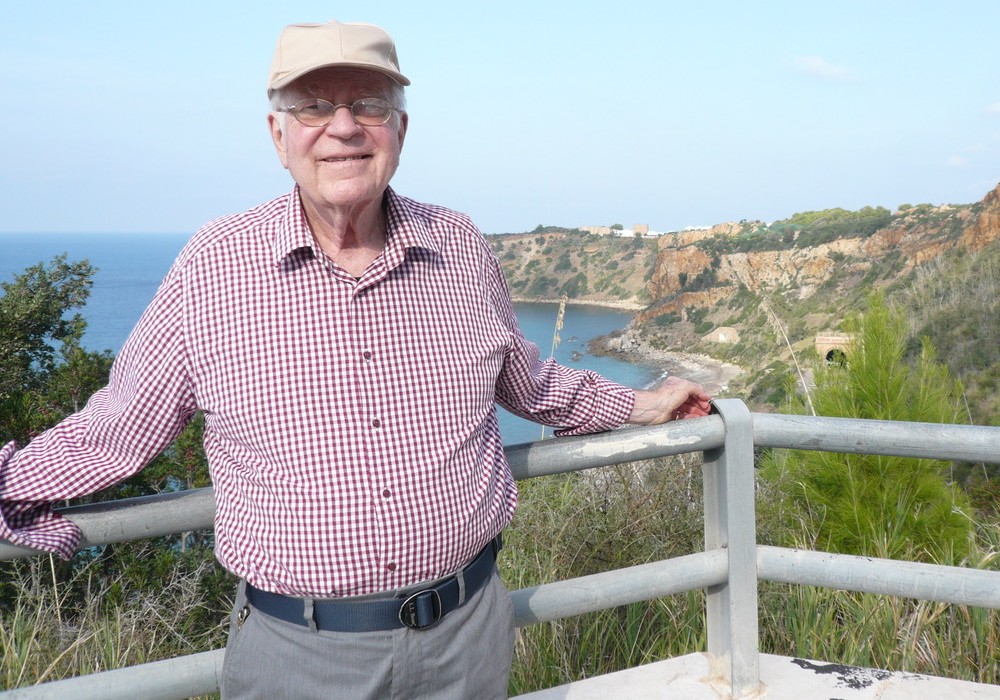 From Bard College President Leon Botstein:
From Bard College President Leon Botstein:
It is with sadness that I inform the Bard community of the death of our colleague, Frederick Hammond, just a few days ago. He served as Irma Brandeis Professor of Romance Culture and Music History at Bard between 1989 and 2013, when he retired. Fred suffered from progressive heart disease; he was quite ill during these past months. But his mind and spirit did not weaken. Last August he celebrated his 85th birthday. A memorial service is being planned according to his wishes, and he will be interred in the Bard College cemetery.
Fred was an exceptional scholar and performer. He was a member of a pioneering post World War II generation of American music historians, many of whom, like Fred, were not only scholars, but performers. He was an undergraduate at Yale University where he also completed his Ph.D. He taught first at the University of Chicago, then at Queens College of the City University of New York, and subsequently, for almost a quarter century, at the University of California, Los Angeles, before coming to Bard. He was the first full-time music historian in Bard’s history.
Fred was a distinguished scholar of Medieval, Renaissance, and Baroque music. He is best known for his definitive biography and study of the works of Girolamo Frescobaldi. His other major contributions to scholarship concern patronage and culture during the Baroque era in Rome, primarily the contributions of the Barberini family. His scholarly interests made Fred Hammond an expert and connoisseur of all things Italian, including its ancient and modern history, its literature, and above all, its language.
This summary does not do justice to the exceptional depth, mastery of detail, and subtlety of Fred Hammond’s learning. He was a true scholar who loved archives, manuscripts, and the joy of searching for clues and evidence to solve historical riddles and paradoxes, small and large. He inspired and trained many younger scholars, including the late James Harold Moore, a protégé from Fred’s years at UCLA who discovered major works of the Baroque long thought forgotten and who solved the mystery of performance practices inside the church of San Marco in Venice, the subject of one of Fred’s last publications.
Fred Hammond was a distinguished keyboard player. He was a student and protégé of Ralph Kirkpatrick, the eminent harpsichordist and expert on Scarlatti. Fred studied with Kirkpatrick at Yale. Fred’s primary instruments were the harpsichord, clavichord, and the organ; his knowledge of the history of these instruments was astonishing. He played continuo in professional performances for most of his life. In the 1980’s he was the continuo player for the Los Angeles Philharmonic. Fred directed the E. Nakamichi Festival of Baroque Music in Los Angeles, and the Clarion Music Society in New York. At Bard, he played in many a Bard Music Festival, including a delightful performance of an opera by Franz Joseph Haydn.
Fred was charming, wonderfully articulate, and generous to others. His command of English, in writing and speech, was elegant and exemplary. His writings mirrored an ideal of clarity and refinement. His concern for the beauty of language betrayed a lifelong love, not only of the intersection of words and music found in sacred music, opera and song, but also of poetry, particularly the work of W.H Auden.
As a performer and scholar, Fred’s range was astonishing. He was as well versed in the music of the 19th and 20th century as he was in the music of the 18th, 17th and 16th centuries. The exceptional range of his expertise was available to Bard undergraduates, not only in Annandale but in the Bard Prison Initiative. Fred was the first to teach music history in BPI. He did so with great imagination and style; he considered teaching in BPI a high point in his career as a teacher.
Bard will miss Fred, as will musicians, scholars, and friends, in New York, on the east coast, and others in Europe. His life and work will be remembered, as will his devotion to the towering achievements of the human imagination.



